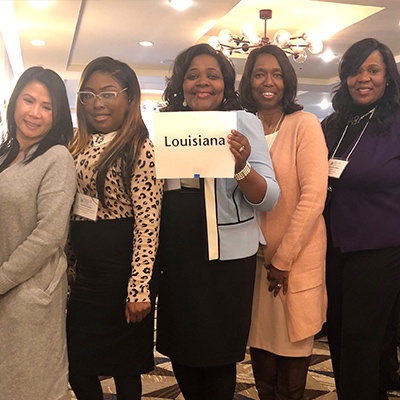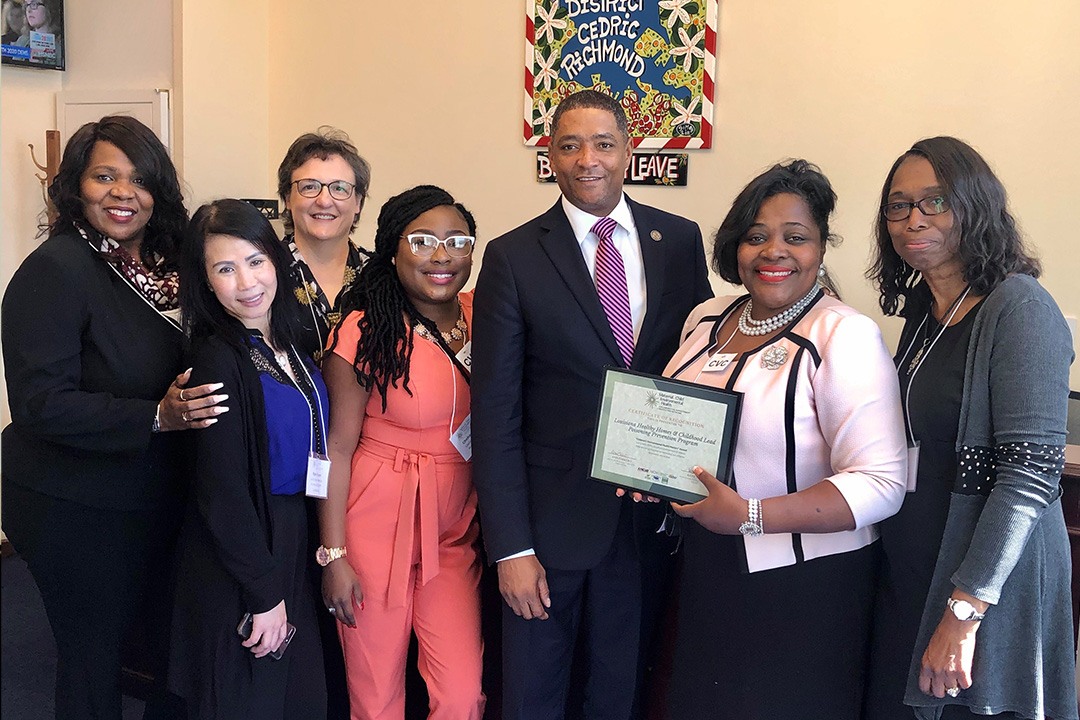
Aim
- Improve lead screening in children ages 0 through 6 by 25%.

Results
Data Resources
- Established a data linkage with Medicaid claims data to track blood lead levels of Medicaid-enrolled children.
Education, Training, and Outreach
- Awareness packets were sent to 400 pediatricians and family practice physicians in targeted areas.
- Trained 85 clinical providers and public health professionals at Excelth clinical staff training.
- Trained 250 New Orleans pediatric and medical/pediatric residents and 100 nursing students on lead poisoning prevention and lead testing.
- Successfully educated parents about the importance of testing their homes for lead and ways to prevent childhood lead poisoning, distributed Lead Smart Testing kits, and distributed National Lead Poisoning Prevention Week awareness packets.
Partnerships
- Partnered with Crescent City Special Supplemental Nutrition Program for Women, Infants, and Children (WIC) Program on a pilot to increase lead testing of children ages 1 and 2 and to train WIC staff and WIC parents on the latest childhood lead poisoning facts and ways to prevent childhood lead poisoning.
- More than 1,586 children were tested at the pilot WIC sites; Louisiana tripled its initial goal to test 300 children!
- Partnered with parents on Plan-Do-Study-Act cycles to improve WIC testing rates and outreach activities.

Resources
- Louisiana Healthy Homes and Childhood Lead Poisoning Prevention Program (LHHCLPPP) flyer for parents
- Ask Your Doctor, Local Clinic and Health Center to Screen Young Children for Lead Poisoning (LHHCLPPP lead prevention video)
- Strengthening Quality Improvement and Innovation through Family Engagement in Collaborative Improvement and Innovation Networks (presentation at 2019 AMCHP Conference)
- Improving Care to Address Maternal and Child Lead Exposure – Association of State and Territorial Health Officials (podcast featuring the Louisiana team)
- Louisiana Department of Health: Updating Systems and Strategies for Lead Testing (National Environmental Health Association MCEH CoIIN Success Story)
Click here to view the full change package of strategies and actions that Louisiana used as they worked to achieve their aims as part of the Maternal and Child Environmental Health Collaborative Improvement and Innovation Network (MCEH CoIIN).
Quotes from the Louisiana MCEH CoIIN Team
On quality improvement (QI):
“This allowed our program to analyze our data more and prioritize the strategies that we have implemented.”
On the importance of collaboration:
“Collaboration and sharing information and resources within and outside our state is an essential part of our program.”
On the value of working with families and community agencies:
“Working with families is at the heart of the work that we do at LHHCLPPP. Educating them on ways to keep their children safe from lead poisoning is a very essential aspect of our program.”
On their biggest takeaway from the MCEH CoIIN:
“The MCEH CoIIN was an excellent initiative that better equipped the states to look at our initiatives in a way that promoted quality improvement, utilization of best practices, testing of strategies and the creation, and implementation of innovative approaches that produce successful results.”

Contact

Contact the Louisiana Team:
https://ldh.la.gov/index.cfm/page/466
Dr. Trina Evans Williams, LHHCLPPP Program Coordinator
Trina.Evans@la.gov, 504-568-8254


